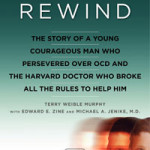Many anxiety sufferers really do suffer because of a potential chemical imbalance, heredity, excessive stress, substance abuse, or other mental ailments. However, there is a group of people that have an anxiety disorder caused by an actual medical condition. In some people there really is a phyiscal basis for their anxious suffering and this is why regular medical screenings are important. Now statistically it is very difficult to say what number of anxiety sufferers have anxiety because of a pre-existing medical condition. But the fact
Mental Chatter
It’s often said that the anxiety sufferer is his own worst enemy and in a sense that’s true. If you’ve ever just listened to what the voice in your head is saying to you, without you even realizing, you’d be pretty amazed. This really hit home to me a couple of weeks ago after yet another trip to my therapist. She asked me to go through an exercise to help me tune into what my brain was telling itself every time I get an anxiety symptom. For me my anxiety centers on my heart. I’m always paranoid I have a heart condition or that I’m about to
What To Do With Your Anxious Morning Thought(s)
You ever sit up in bed from a restful sleep and then immediately start scanning your brain for anxiety and sources of worry? I have and I've done so plenty of times. I seriously doubt that this is intentional on our part, it's more of a habit you see. A habit which can unfortunately throw a wrench into our entire day. They say that breakfast is the most important meal of the day and along those same lines I'd say that just as important is your first thought (or more likely series of thoughts) of the day. To have a set of positive first
The Habit Of Fear
After 10 years of not being able to rid myself of anxiety I've learned a lot. And perhaps one of the most significant lessons I've learned about anxiety is that much of my own anxiety is self inflicted and habitual. It sucks to say but it seems to me that at times I'm my own worst enemy. The fact that fear can even be habitual is not surprising when you think about it. I think the same can be said of any thought or feeling that evokes an intense emotional reaction. For example, if someone tells themselves that they are fat, well
10 Easy Tips To Help You Reduce Stress And Anxiety
If you're like me in anyway you sometimes get desperate for a solution to your nervous problem. After all anxiety and stress can pile on the mental and phyiscal pain until all we want is to make it all stop, like now. This of course is tricky business but after a decade of struggling with this I've learned that in order to achieve more peace in your life you have to do things, and repeat them often. Here are ten ways to do just that. 1. Identify Your Anxiety Triggers: We all have a set of things, people, places, or situations that set off
Hypnosis
photo credit: Pdro (GF) This post comes from a new Anxietyguru.net contributor named Andy. I hope you enjoy his perspectives on hypnosis and his experience with this type of therapy. And don't forget that if you have something to say that you feel may help others who are suffering from anxiety and depression contact me about becoming a contributor today. For those of us who have suffered with anxiety for a prolonged amount of time (six years and counting for me!) then you get to a point where you’ll try anything once. I first tried
Having More Friends Can Reduce Anxiety And Make You Happier
Sadly for the past ten years I have pushed away many friends and potential friends. Anxiety and depression just made me somewhat antisocial, self-isolated, and more focused on myself and my own worries. This phenomenon is actually fairly typical amongst anxiety sufferers but it's the complete opposite of this behavior that could be making us happier and less anxious people. Closeness to other human beings is extremely essential. From a purely psychological perspective this makes perfect sense. Being close to other individuals ensures a
How To Cross The Anxiety Bridge
photo credit: NathanF If you're anything like me than you are anxious about something almost everyday. This is a sometimes light but ever present feeling that something is wrong. This is always compounded when something is, or at least perceived, to be wrong. In both cases a good tip is to wait and see what happens before getting panicked. A good analogy is a bridge crossing. The bridge's span in this case is representative of an anxiety symptom. How do you cross it without veering off course? Now trust me when I say that doing
NPR: An Obsessive Compulsive’s ‘Life In Rewind’
Story Highlights: OCD sufferer Ed Zine suffered from OCD symptoms from a young age. Zine and Harvard psychiatry professor Michael Jenike uncovered the roots of Zine's OCD. "Life In Rewind" is a book co-written by Ed Zine and Dr. Jenike. Zine has recovered from severe OCD.
- « Previous Page
- 1
- 2
- 3
- 4
- 5
- 6
- …
- 17
- Next Page »


